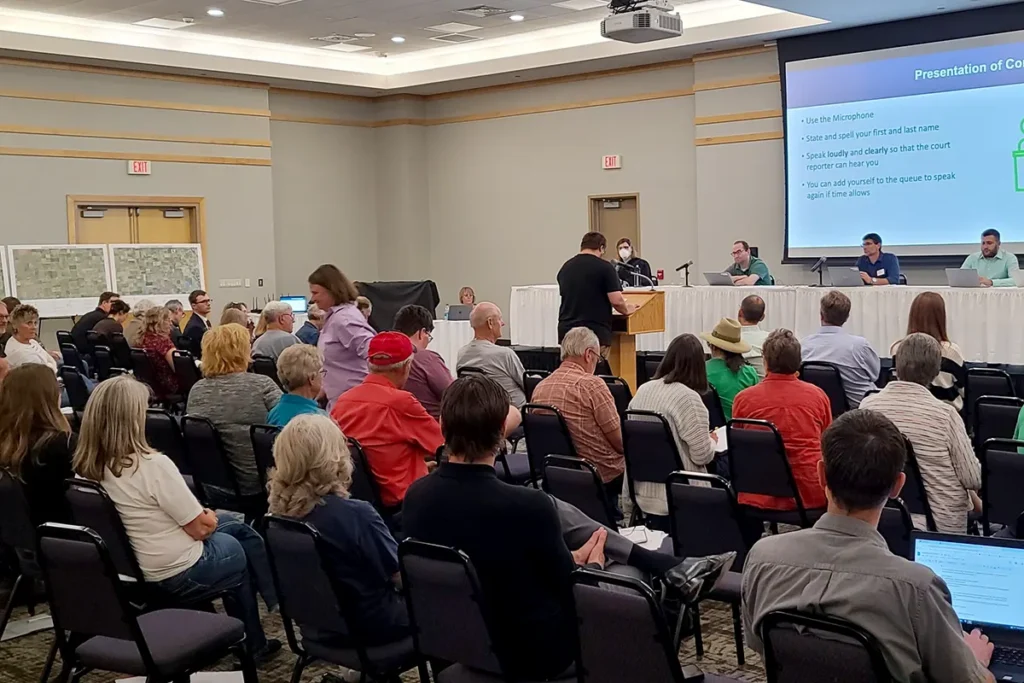What does the Fergus Falls water supply, protections for the Otter Tail River, promised union jobs, landowners, Green Plains ethanol plant and carbon capture have in common? On Tuesday evening, at the Bigwood Event Center in Fergus Falls, Administrative Law Judge Christa Moseng heard from approximately 20 of 70 people in attendance at the Public Utilities Commission hearing on the proposed Summit Carbon Pipeline project planned for Otter Tail and Wilkin Counties.
This proposed project is part of Summit’s push for a $8.5 billion, 2,500 mile web of pipelines that would carry high-pressure CO2 from dozens of ethanol and other industrial facilities in Minnesota, Iowa, Nebraska, North Dakota, and South Dakota to sites in North Dakota where it can be injected into the earth to either extract oil or store it underground. Incentivized by the promise of billions of dollars in state and federal taxpayer-funded subsidies, Summit’s project has become a political flashpoint across the Midwest where landowners and communities in the footprint have raised concerns on a wide range of issues including safety and land-use impacts.
In addition to local attendees, individuals traveled from Redwood, Cottonwood and Renville Counties to testify and put a face to their concerns for the proposed project. They testified that the concerns raised during the comment period for the Draft EIS have not been resolved – leaving many with the same unanswered questions that relate to public safety, setbacks from homes, risks to rural communities, and damage to land, water and the air we breathe.
The last community member to testify that evening stood up and explained that she had not planned to speak but felt compelled to address the room after hearing the earlier comments. She pointed out that of the 20 or so individuals that testified, those in favor of the project stood to benefit financially from the project, while those opposed were concerned about the potential harms the project could cause.
The Final Environmental Impact Statement (FEIS) is an official document intended to provide decision-makers and the public about the social, environmental, and economic impacts and risks of the pipeline, and is a requirement under the Minnesota Environmental Policy Act (MEPA). While Summit is applying for a variety of permits in all five states and recently received approval for hundreds of miles of the pipeline in Iowa, Minnesota’s FEIS is the only in-depth review of its kind that the project is getting at either the state or federal level.
Administrative Law Judge Moseng, who heard Tuesday’s testimony plays a key role by providing a second set of eyes to the Minnesota Public Utilities Commission (PUC). She will then provide a report to the PUC with findings of fact, conclusions of law, and if a recommendation is made, will there be conditions be attached as part of the recommendation.
There are four options available to the PUC: the original route proposed by Summit in their application, two alternative routes proposed by CURE, and a No Action Alternative. It is up to the PUC to determine if they will issue the requested permit and if the permit will include any of the Judge’s recommendations and/or conditions.
Additional info about CO2 pipelines: carbonpipelinesmn.org


